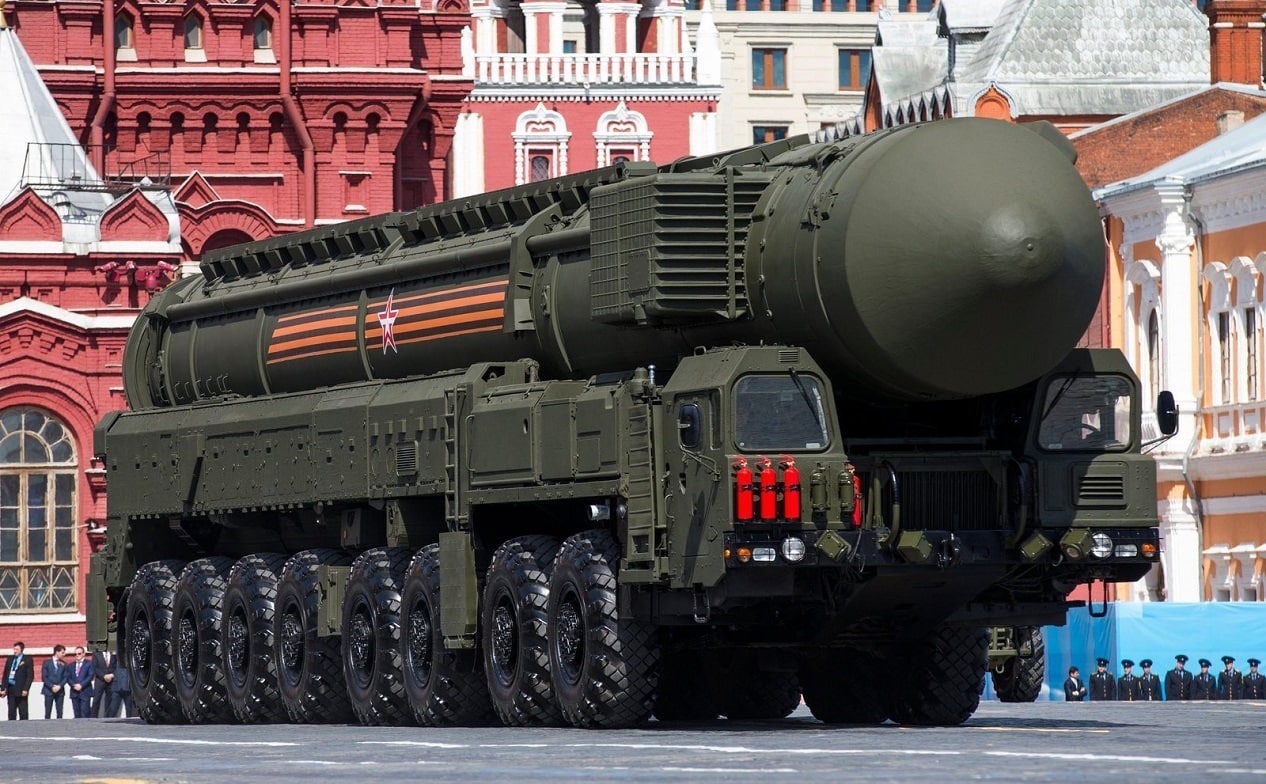This week Vyacheslav Volodin, the head of Russia’s State Duma, threatened to make Europe disappear if Western governments supply Ukraine with nuclear weapons.
While no country has indicated an arms transfer of this magnitude would ever be considered, this is not the first time a Russian official has prodded the slumbering beast of nuclear escalation. Prior to Russia’s invasion of Ukraine, President Vladimir Putin warned that any interfering country would “face consequences greater than any faced in history.” Putin also elevated Russia’s nuclear weapons to high-alert status. While experts and officials largely agree that nuclear escalation is unlikely, there are scenarios that could push Putin in that direction. Russia’s nuclear arsenal has remained a top priority for its government since the fall of the Soviet Union.
With thousands of nuclear weapons at its disposal, Russia’s threats cannot be shrugged off as symbolic.
Russia Has Thousands of Nukes
Following the Soviet Union’s collapse in 1991, Russia inherited the USSR’s expansive arsenal of weapons, including nuclear warheads. Today, experts put Moscow’s count at 5,977 nuclear warheads. While the majority of this arsenal reportedly comprises smaller, short-range nuclear weapons, Russia probably possesses at least 1,000 intercontinental ballistic missiles and 800 submarine-launched ballistic missiles. Russia and the U.S. combine to own over 90% of all nuclear weapons on Earth.
Two years following the fall of the Soviet Union, Russia said that it would only permit use of its nuclear weapons if the country’s existence was threatened. However, this policy evolved when Putin became secretary of the National Security Council in 2000. According to a report published by the U.S. Naval Institute, Russia’s current military doctrine allows for nuclear use in a conventional conflict.
“The Russian Federation reserves the right to use nuclear weapons in response to the use of nuclear and other types of weapons of mass destruction against it and (or) its allies, as well as in response to large-scale aggression utilizing conventional weapons in situations critical to the national security of the Russian Federation and its allies,” USNI explains.
We Don’t Know Moscow’s Red Line
Despite Putin’s threats and Russia’s nuclear doctrine, conventional wisdom holds that Russia is very unlikely to use nuclear weapons. In April, Russian Foreign Minister Sergei Lavrov claimed Moscow was committed to avoiding nuclear war. Additionally, CIA Director William Burns stated that no practical evidence indicates Putin is planning to use nuclear weapons.
However, no one knows where Russia’s red line for justifying nuclear use lies. If Russian forces lose ground in Ukraine, Putin could escalate the conflict. While no country besides North Korea has tested a nuclear weapon in this century, this tactic remains a possibility for Russia.
In late April, U.S. President Joe Biden announced a massive new aid package for Ukraine. The $20.4 billion dollar package includes a litany of weapons ranging from anti-aircraft missiles and drones to artillery rounds. The West’s commitment to aiding Ukraine’s defensive mission has Putin on edge. The Russian president could respond to increased pressure from the West in an unpredictable manner.
Maya Carlin is a Middle East Defense Editor with 19FortyFive. She is also an analyst with the Center for Security Policy and a former Anna Sobol Levy Fellow at IDC Herzliya in Israel. She has by-lines in many publications, including The National Interest, Jerusalem Post, and Times of Israel.

